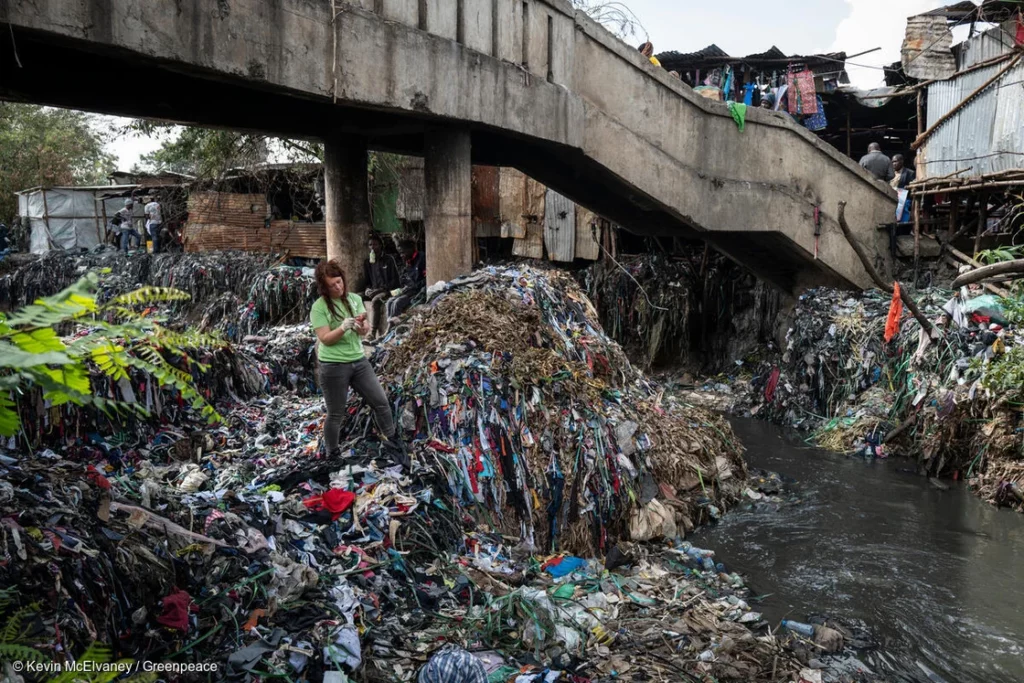Fashion Devastation and Mindless Shopping
Another Example of People’s Inaction in Hunting for Cheap Clothing
Last week, we witnessed yet another TV program highlighting the immense devastation caused by the fashion industry and mindless shopping. This time, the focus was specifically on the fast fashion and ultra-fast fashion segments, although the issue pertains to the fashion system as a whole.
The program “Newsroom,” titled “Buy, Wear, and Toss,” covered aspects we’ve discussed repeatedly. Indeed, there was nothing new.
“Every year, 150 billion new pieces of clothing are produced worldwide, sold at rock-bottom prices, and of increasingly poor quality. They are worn only a few times, then end up at the back of the closet and are never used again. But what happens when we get rid of them? Where do all these clothes end up? The episode follows their long journeys to Ghana – where they pollute the beaches and the ocean – and the Atacama Desert in Chile, magnificent places that have become immense open-air dumps. Behind every t-shirt sold for a few euros, there is not only pollution but also the exploitation of low-cost labour and a huge business on which organised crime has also set its sights.”
Fashion devastation means overproduction, overconsumption, waste, pollution, exploited workers and modern-day slavery. We have explored these topics in detail in previous posts:
The land of waste
From fast to ultra-fast: a cultural regression
Fashion waste visible from space
Behind the Seams: Fashion Industry & Forced Labour
Conclusion
These are just a few examples, as we frequently share news, information, and thoughts on these crucial matters. Indeed, discussing style without setting priorities would be naive and utterly pointless.
In the end, no piece of clothing that costs just a few euros comes without the exploitation of a worker. However, one image powerfully captured the fashion devastation and mindless shopping: a man standing on heaps of garbage, mountains of clothing piling up, holding a tag from a certified green company. Sad irony! The consequences of mindless shopping in the Global North significantly impact the Global South. That conveys a clear idea of how fake the façade of sustainability in the fashion industry is.
While we are glad to see these issues gaining attention, as we have explored over the past five years of blogging, we feel a sense of bitterness in realising that nothing ever changes.
Fashion Devastation and Mindless Shopping Read More »
